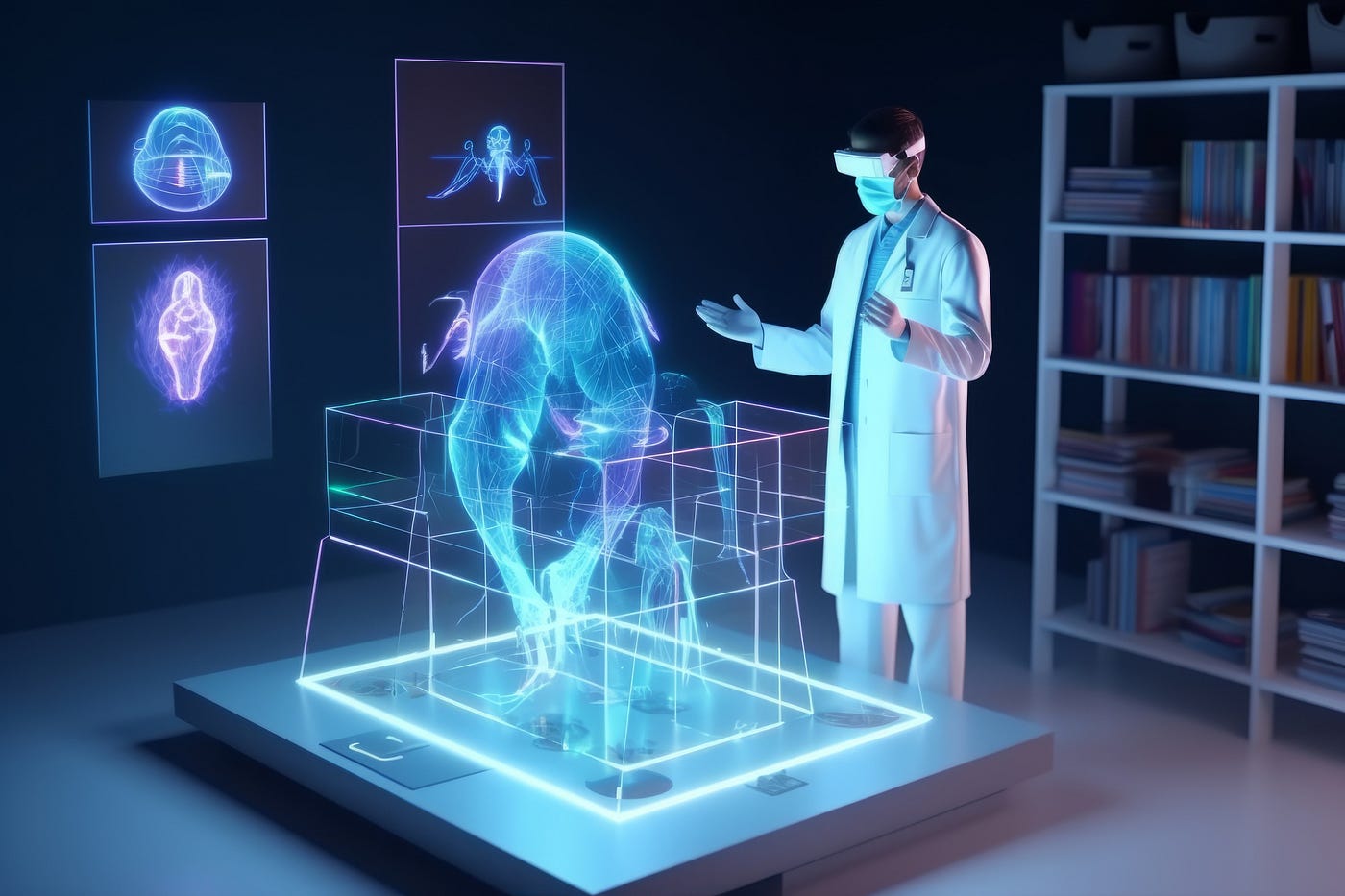
Introduction
In 2025, artificial intelligence (AI) stands at the forefront of healthcare innovation, transforming patient care through enhanced diagnostics, personalized treatments AI in healthcare 2025, and streamlined administrative processes. As healthcare systems worldwide grapple with increasing demands and workforce challenges, AI emerges as a pivotal tool in delivering efficient and effective care.
Enhancing Diagnostics with AI
AI’s capability to analyze vast datasets enables early and accurate disease detection. For instance, researchers have developed an AI tool that predicts which men with high-risk, non-metastatic prostate cancer will benefit from the drug abiraterone. By analyzing biopsy images, the AI identifies biomarkers indicating likely benefit, potentially guiding treatment decisions and improving outcomes. [Source]
Personalizing Treatment Plans
AI facilitates personalized medicine by tailoring treatments to individual patient profiles. In thyroid care, AI-powered diagnostic tools are improving the accuracy of disease detection and enabling customized treatment plans. This approach ensures that patients receive therapies best suited to their specific conditions, enhancing efficacy and reducing adverse effects. [Source]
Streamlining Administrative Tasks
Administrative burdens often detract from patient care. AI addresses this by automating documentation processes. Tools like Microsoft’s DAX Copilot and Abridge’s AI scribes capture and process doctor-patient conversations, updating records and drafting care plans. This automation reduces documentation time, allowing clinicians to focus more on patient interactions. [Source]
Addressing Workforce Challenges
Healthcare systems face significant workforce shortages. AI assists by automating routine tasks, such as delivering medications and retrieving supplies, through robots like Diligent Robotics’ Moxi. This support allows healthcare professionals to concentrate on direct patient care, mitigating the impact of staffing gaps. [Source]
Improving Remote Patient Monitoring
AI enhances remote patient monitoring by analyzing data from wearable devices, predicting health trends, and alerting healthcare providers to potential issues. This proactive approach enables timely interventions, particularly beneficial for managing chronic conditions and reducing hospital readmissions. [Source]
Conclusion
AI’s integration into healthcare in 2025 marks a significant shift towards more efficient, personalized, and proactive patient care. By enhancing diagnostics, tailoring treatments, streamlining administrative tasks, and addressing workforce challenges, AI is poised to redefine the healthcare landscape, ultimately improving patient outcomes and system sustainability.


